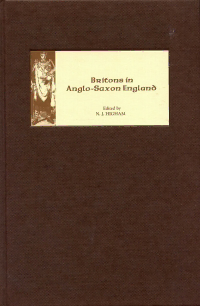
Britons in Anglo-Saxon England PDF
Preview Britons in Anglo-Saxon England
CONTENTS Page: v LIST OF ILLUSTRATIONS Page: vii LIST OF TABLES Page: viii CONTRIBUTORS Page: ix ACKNOWLEDGEMENTS Page: xi ABBREVIATIONS Page: xii 1. Britons in Anglo-Saxon England: An Introduction Page: 1 Part I: Archaeological and Historical Perspectives Page: 16 2. Anglo-Saxon Attitudes Page: 16 3. Forgetting the Britons in Victorian Anglo-Saxon Archaeology Page: 27 4. Romano-British Metalworking and the Anglo-Saxons Page: 42 5. Invisible Britons, Gallo-Romans and Russians: Perspectives on Culture Change Page: 57 6. Historical Narrative as Cultural Politics: Rome, ‘British-ness’ and ‘English-ness’ Page: 68 7. British Wives and Slaves? Possible Romano-British Techniques in ‘Women’s Work’ Page: 80 8. Early Mercia and the Britons Page: 91 9. Britons in Early Wessex: The Evidence of the Law Code of Ine Page: 102 10. Apartheid and Economics in Anglo-Saxon England Page: 115 11. Welsh Territories and Welsh Identities in Late Anglo-Saxon England Page: 130 12. Some Welshmen in Domesday Book and Beyond: Aspects of Anglo-Welsh Relations in the Eleventh Cent Page: 144 Part II: Linguistic Perspectives Page: 165 13. What Britons Spoke around 400 AD Page: 165 14. Invisible Britons: The View from Linguistics Page: 172 15. Why Don’t the English Speak Welsh? Page: 192 16. Place-Names and the Saxon Conquest of Devon and Cornwall Page: 215 17. Mapping Early Medieval Language Change in South-West England Page: 231 INDEX Page: 245
Description:The papers collected here seek to shed new light on this complex issue, by bringing together contributions from different disciplinary specialists and exploring the interfaces between various categories of knowledge about the past. They assemble both a substantial body of evidence concerning the presence of Britons and offer a variety of approaches to the central issues of the scale of that presence and its significance across the seven centuries of Anglo-Saxon England.
NICK HIGHAM is Professor of Early Medieval and Landscape History at the University of Manchester.
Contributors: RICHARD COATES, MARTIN GRIMMER, HEINRICH HARKE, NICK HIGHAM, CATHERINE HILLS, LLOYD LAING, C.P. LEWIS, GALE R. OWEN-CROCKER, O.J. PADEL, DUNCANPROBERT, PETER SCHRIJVER, DAVID THORNTON, HILDEGARD L.C. TRISTRAM, DAMIAN TYLER, HOWARD WILLIAMS, ALEX WOOLF
